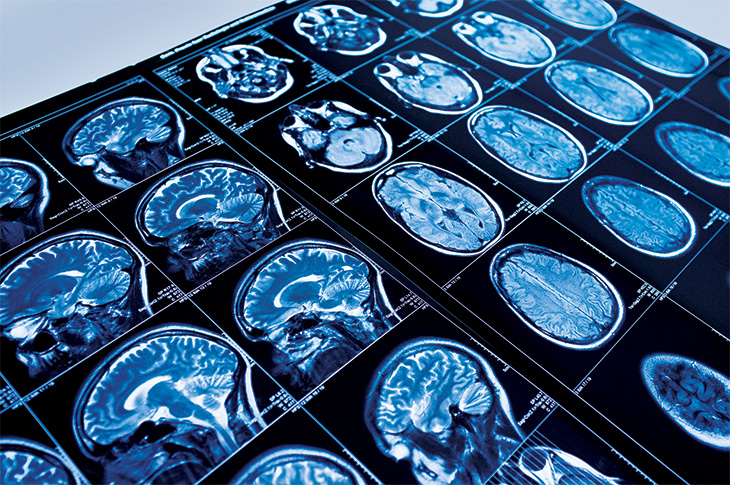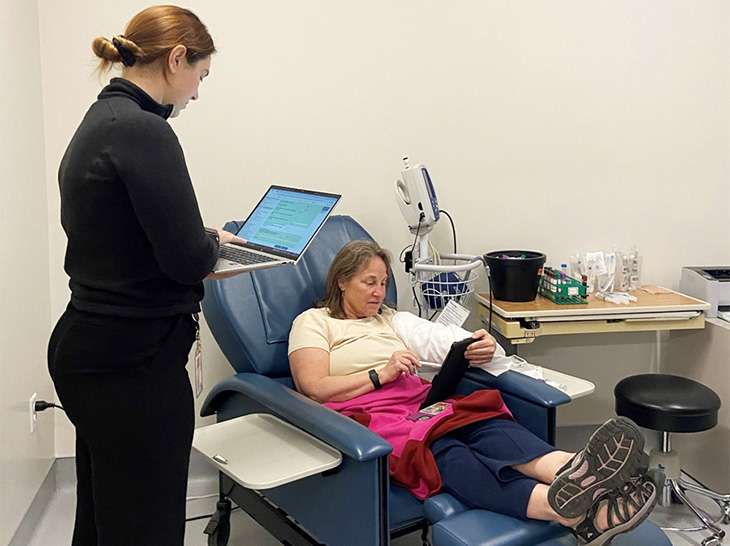In fiscal year 2023-24, UC Davis’ external research awards exceeded $1 billion, surpassing last year’s total by $33 million. The School of Medicine was once more the top recipient with $400 million, the highest among all UC Davis colleges.
“For the third consecutive year, UC Davis has set the bar high for research funding,” said Chancellor Gary S. May. “This investment will empower our university to continue transformative research confronting the world’s most persistent challenges from climate change to child welfare, generating unprecedented opportunities for individuals both here in California and across the globe."
The federal government continued to be the largest provider of funding to UC Davis at $441 million. The second leading source was the state of California at $237 million, up by $76 million. Funding from industry made up the third highest source, totaling $95 million.
The medical school had a total of 1,414 awards, funding 566 principal investigators. Research spanned from ultra-rare diseases to the most common ones, like diabetes, cancer and heart disease.
“We truly appreciate these investments made in our groundbreaking biomedical research by funding agencies and industry partners,” said Kim Barrett, vice dean for research and distinguished professor of physiology and membrane biology. “Our faculty are tireless in seeking and receiving research funding. Their efforts will permit the study not only of fundamental biological mechanisms that underlie disease, but also the development and testing of innovative therapies and an understanding of the social determinants of health.”
 Distinguished Professor Charles DeCarli studies the clinical significance of white matter lesions appearing on MRIs of people with cognitive complaints.NIH is the top federal funding agency
Distinguished Professor Charles DeCarli studies the clinical significance of white matter lesions appearing on MRIs of people with cognitive complaints.NIH is the top federal funding agency
Federal funding to the school was $177 million. The National Institutes of Health (NIH) remains the major federal funding source for the medical school.
This year, the NIH National Center for Advancing Translational Sciences continued its support to the UC Davis Clinical and Translational Science Center (CTSC), granting the center $10 million. CTSC, led by Professor Ted Wun, serves as a catalyst to support biomedical research projects with the potential to improve health care. It provides services and resources to investigators, staff, scholars, trainees and community partners.
The NIH also funded major grants to UC Davis researchers who study Alzheimer’s and dementia. For example, the NIH National Institute of Neurological Disorders and Stroke awarded $9.5 million to Charles DeCarli, distinguished professor of neurology and co-director of the UC Davis Alzheimer's Disease Research Center. DeCarli studies the clinical significance of white matter lesions appearing on MRIs of people with cognitive complaints.
California funding medical and health researchThe State of California awarded the medical school $87.4 million in fiscal year 2023-24.
One of the biggest state grants to the School of Medicine comes from the California Department of Public Health (CDPH). A $37.6 million grant to the Department of Public Health Sciences will fund efforts to prepare Californians for public health emergencies.
The project is being led by distinguished professor and chair of the department Bradley Pollock. It will provide qualified personnel to aid the Emergency Preparedness Office and CDPH programs with emergency planning and activities. It will include:
Drills and exercise scenarios Planning for the strategic national stockpile Crisis response Statewide disaster planning Developing publications and communications to support the California Department of Public Health programsAnother notable state grant came from The California Department of Health Care Services. The department awarded Professor Tara Niendam $23 million to support the California Early Psychosis Intervention Network of California (EPI-CAL). EPI-CAL is a program that works on accelerating recovery and promoting discovery in early psychosis. Niendam is its director and principal investigator.
 The CTSC Clinical Research Center provides the best clinical resources for patient-oriented research focusing on human health and disease.Industry support and clinical trials
The CTSC Clinical Research Center provides the best clinical resources for patient-oriented research focusing on human health and disease.Industry support and clinical trials
Researchers at the medical school were also funded by industry partners. Academia-industry partnerships allow much-needed support to fund clinical trials to find treatments for diseases.
One example is Revolution Medicines, Inc. They awarded $2.1 million to Jonathan Riess, director of thoracic oncology, to test a potential treatment for patients with RAS-mutated non-small cell lung cancer.
UC Davis research by the numbersResearch at UC Davis produces innovations that become the foundation for tomorrow’s products, services and businesses. Last fiscal year, researchers generated 149 records of invention, submitted 208 patent applications and secured 109 patents and plant certificates.
“UC Davis’ success in attaining this level of funding and delivering global impact is a testament to the broad ingenuity and passion of our faculty, researchers and staff throughout the university,” said Vice Chancellor for Research Simon Atkinson.
“A great example of the basic to translational to clinical pipeline is the research of neuroscientist Sergey Stavisky and neurosurgeon David Brandman in the Department of Neurological Surgery. Their work has shown great promise in the use of Brain-Computer Interfaces to restore speech to patients suffering from ALS,” Barrett said.
To learn more about the impact of UC Davis research and innovation, view the Annual Research Impact Report.
Read More:
留言 (0)